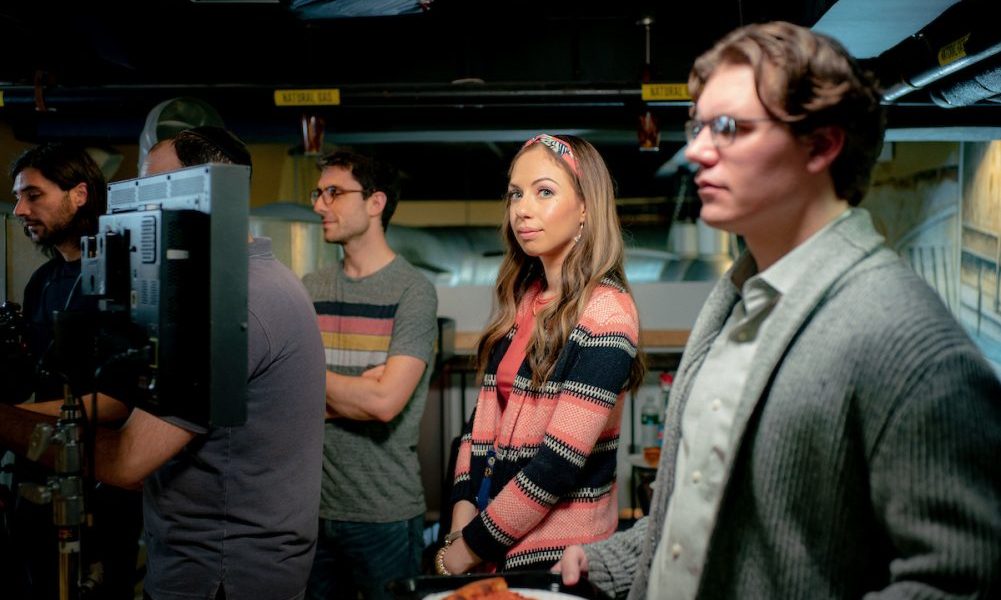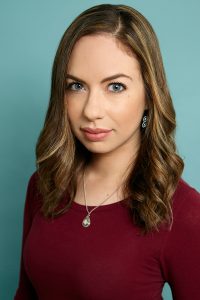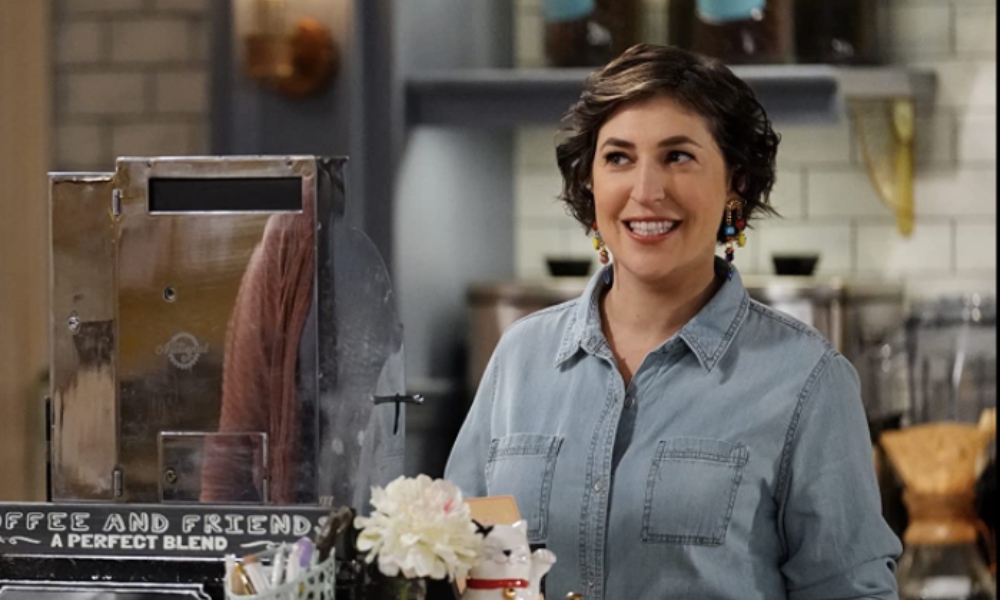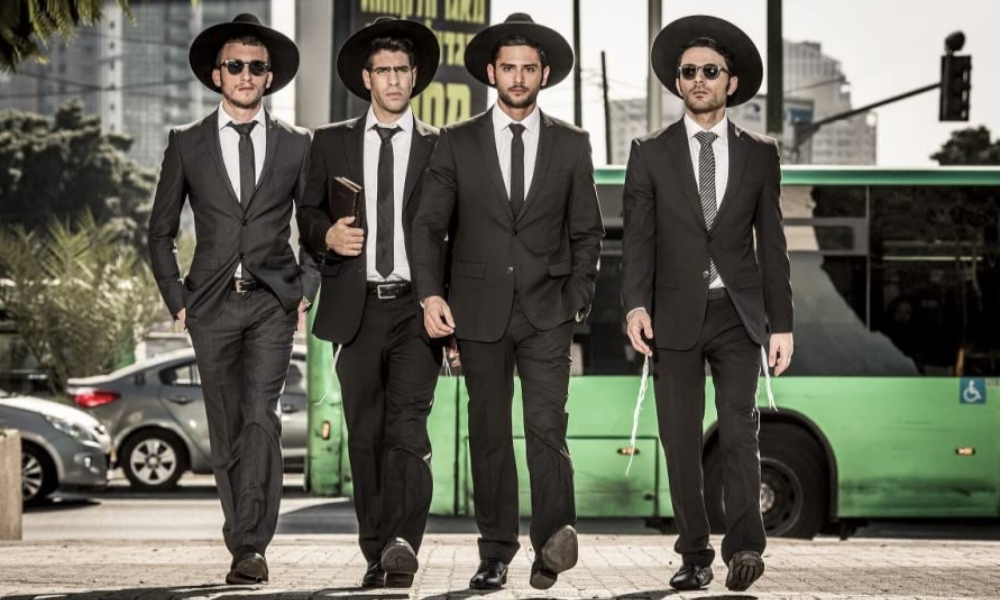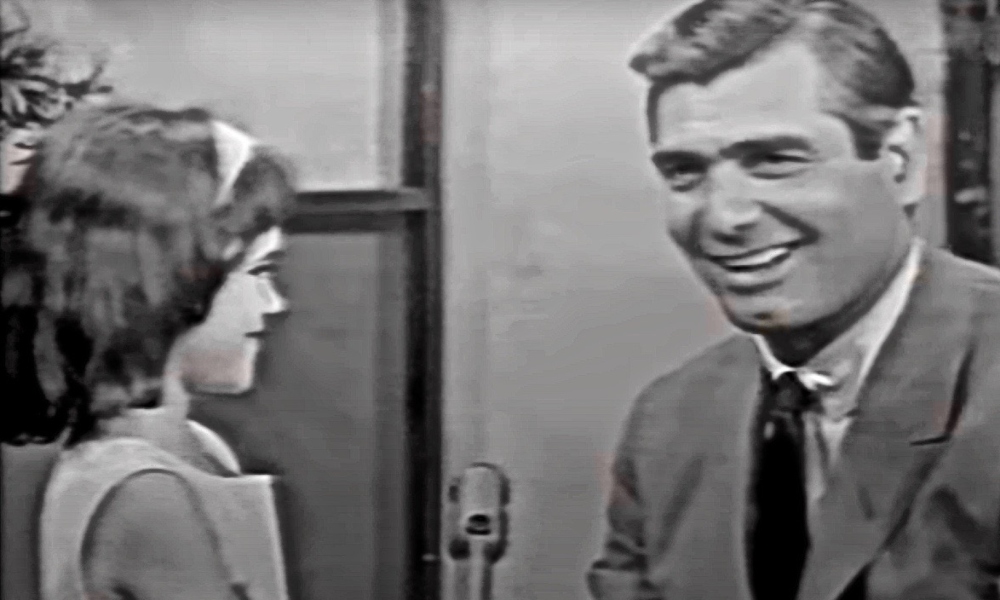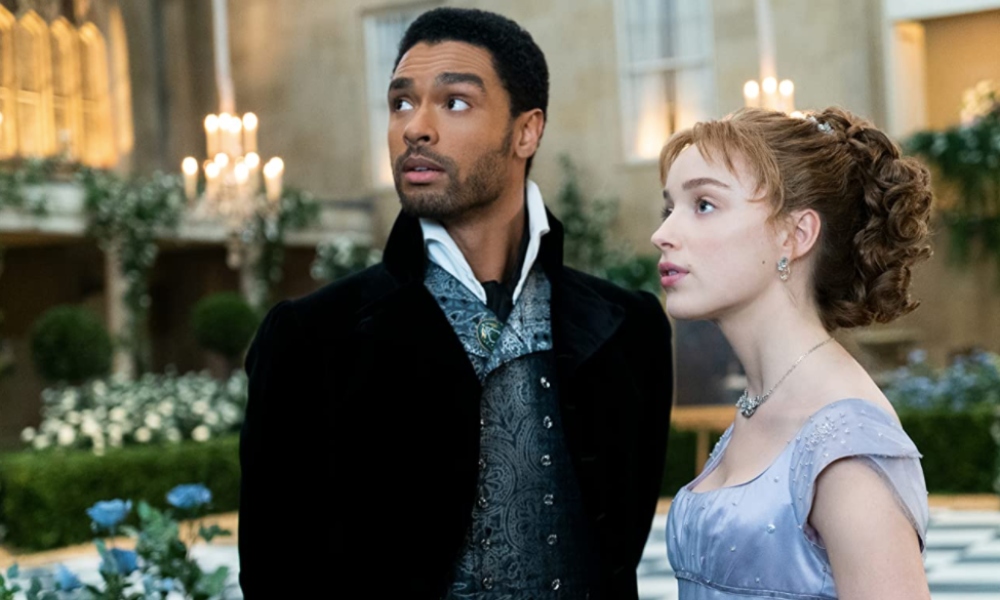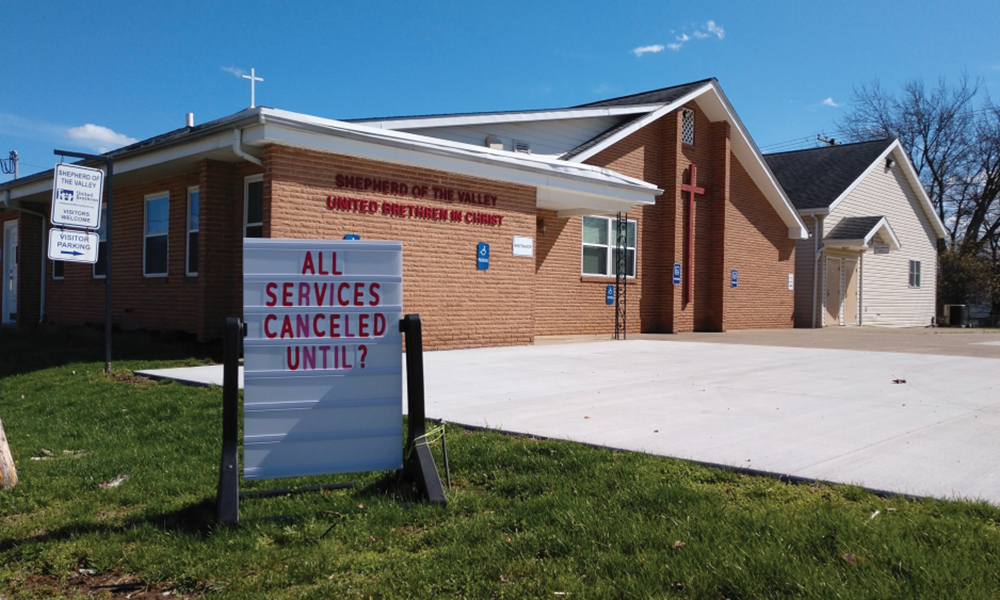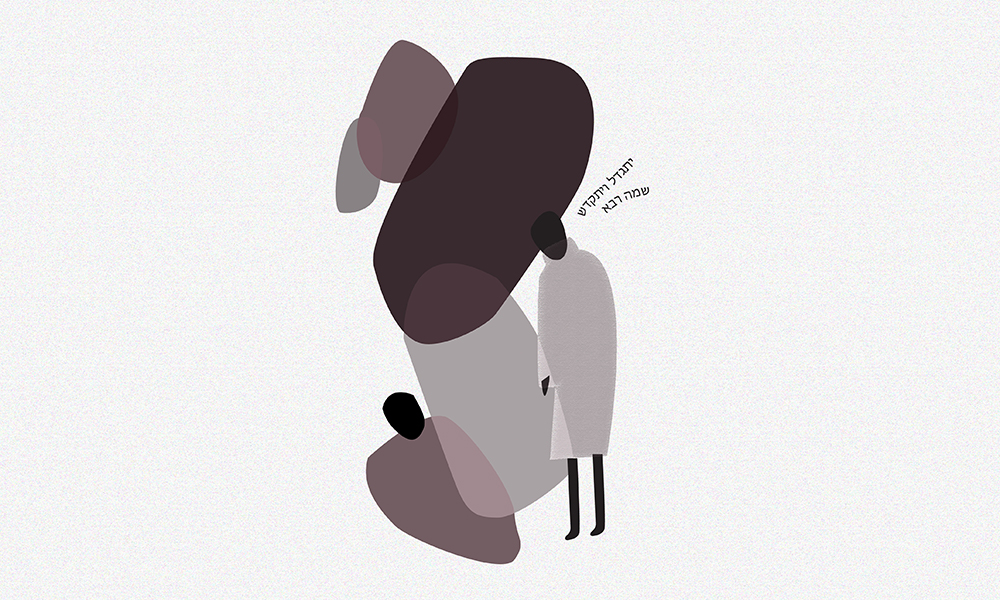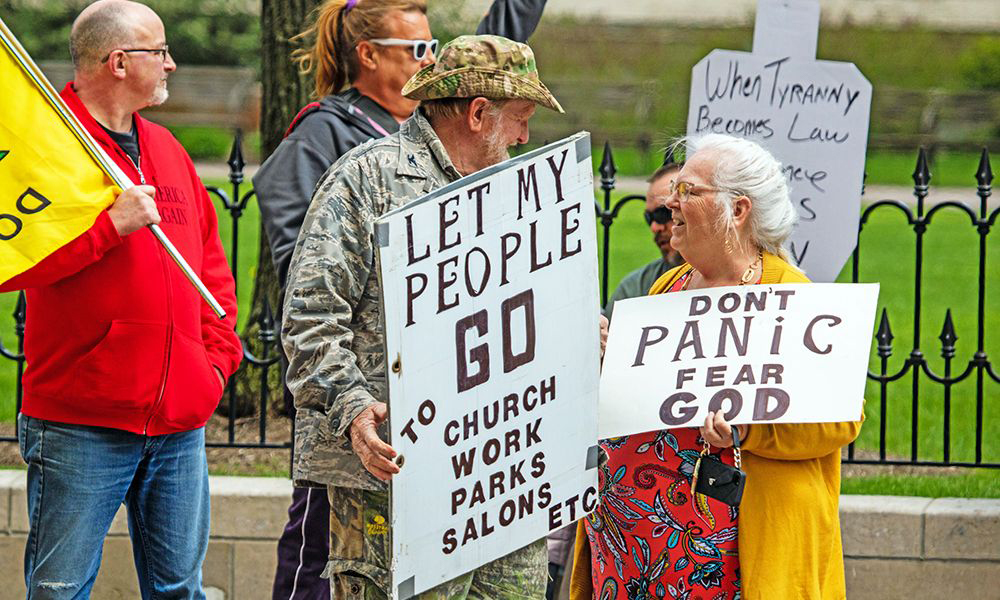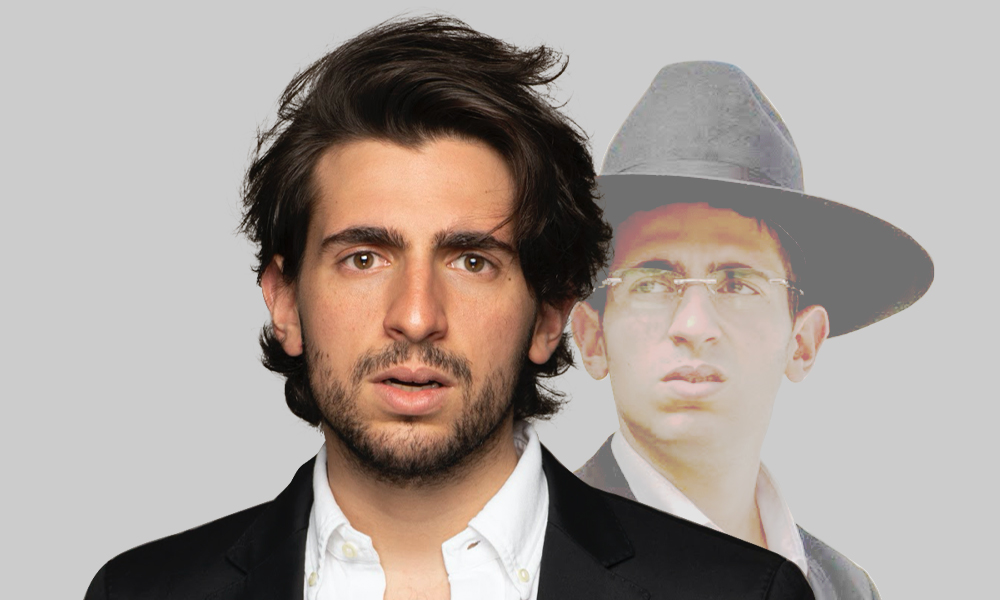When Soon By You, a comic web series, started its life as a 15-minute film in 2016, the prospect of a series seemed unattainable—though “it was certainly a dream,” says creator Leah Gottfried. With little outside support, Gottfried, now 28, wrote, cast, directed and edited the project, which went on to win Best Short Film at Washington, DC’s Jewish Film Festival in 2016. Now in its second season, the ongoing YouTube series (with its next episode slated for January) has had more than a million views, each episode garnering between 100,000-200,000.
Soon By You zeroes in on the lives of Modern Orthodox, New York-based millennials grappling with friendships, family dramas and, most centrally, marriageable, and sometimes not-so-marriageable, partners. Think Friends (now celebrating its 25th anniversary), if the main characters were religious Jews setting their sights on landing mates in a culture that puts a premium on getting married—sooner rather than later. Soon By You is the translation of a Yiddish expression frequently uttered to single women and their parents by well-intentioned (and often irritating) friends and relatives at Jewish weddings.
Loosely inspired by the Israeli television series Srugim (2008-2012), Soon By You is the first American show dealing with the complex, contradictory world of Modern Orthodoxy, says Gottfried. It also comes on the heels of Shtisel, the critically acclaimed Israeli Netflix series about an ultra-Orthodox Jerusalem family, which premiered in 2013. “I think the success of Shtisel is pretty telling,” Gottfried says. “When I was first creating Soon By You, people used to tell me that no one other than Orthodox Jews would want to watch a show about Orthodox Jews, but I always believed it could have universal appeal. Shtisel proved that in a big way, and I’ve seen it with my show as well—all kinds of people watch and relate to it. I also think it’s great to see different kinds of Orthodox Jews, and Jewish characters in general, portrayed on screen.”
Along with her writing and directing gigs, Gottfried also acts, playing husband-hunting Sarah Jacobs, a comic character who couldn’t be more unlike her thoughtful, introspective creator. The series also features, among others, David (Danny Hoffman), a sensitive, likable rabbinical student and would-be boyfriend for the artistically inclined Sarah Feldman (Sara Scur). And, yes, this story features two characters named Sarah.
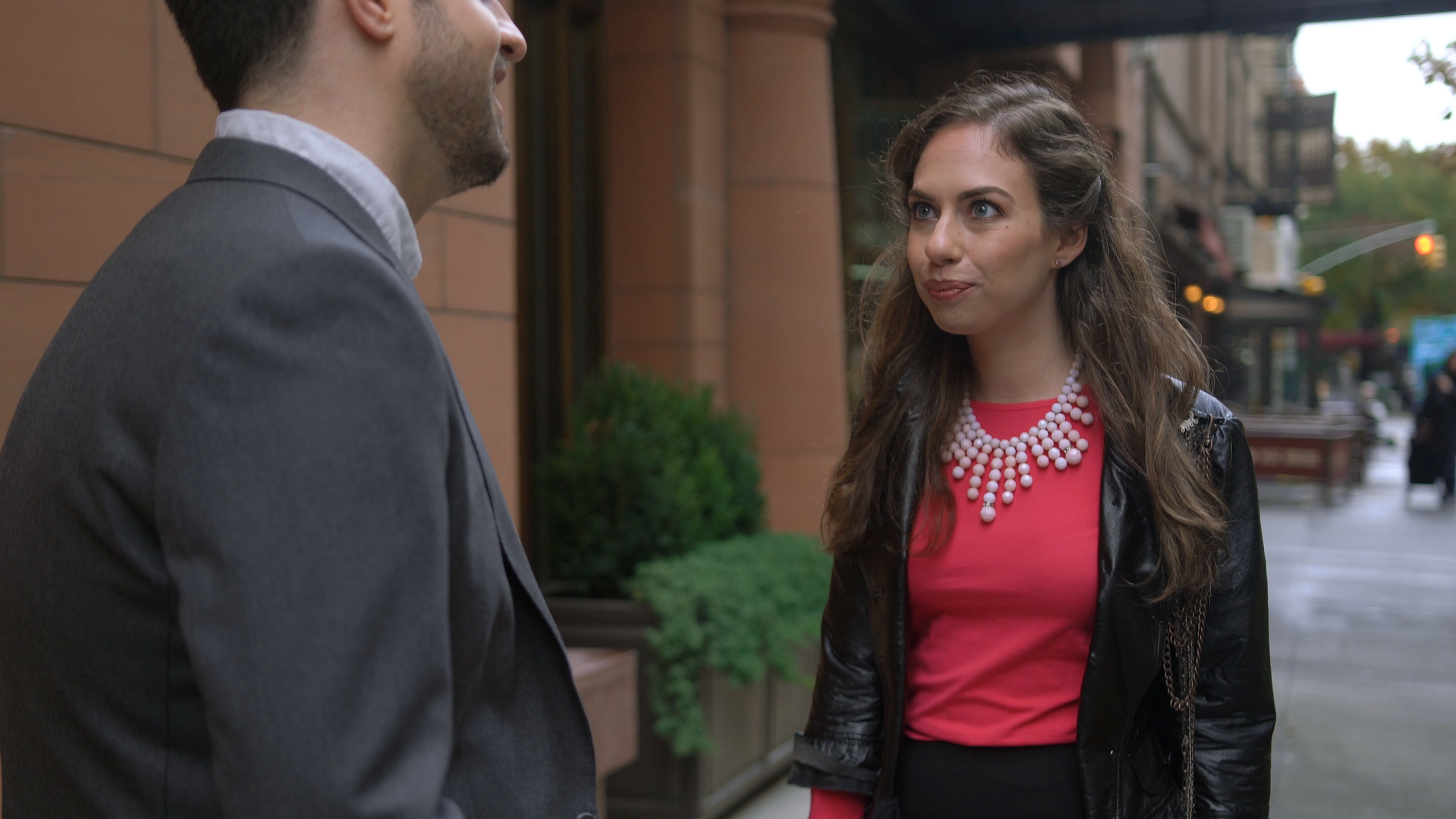
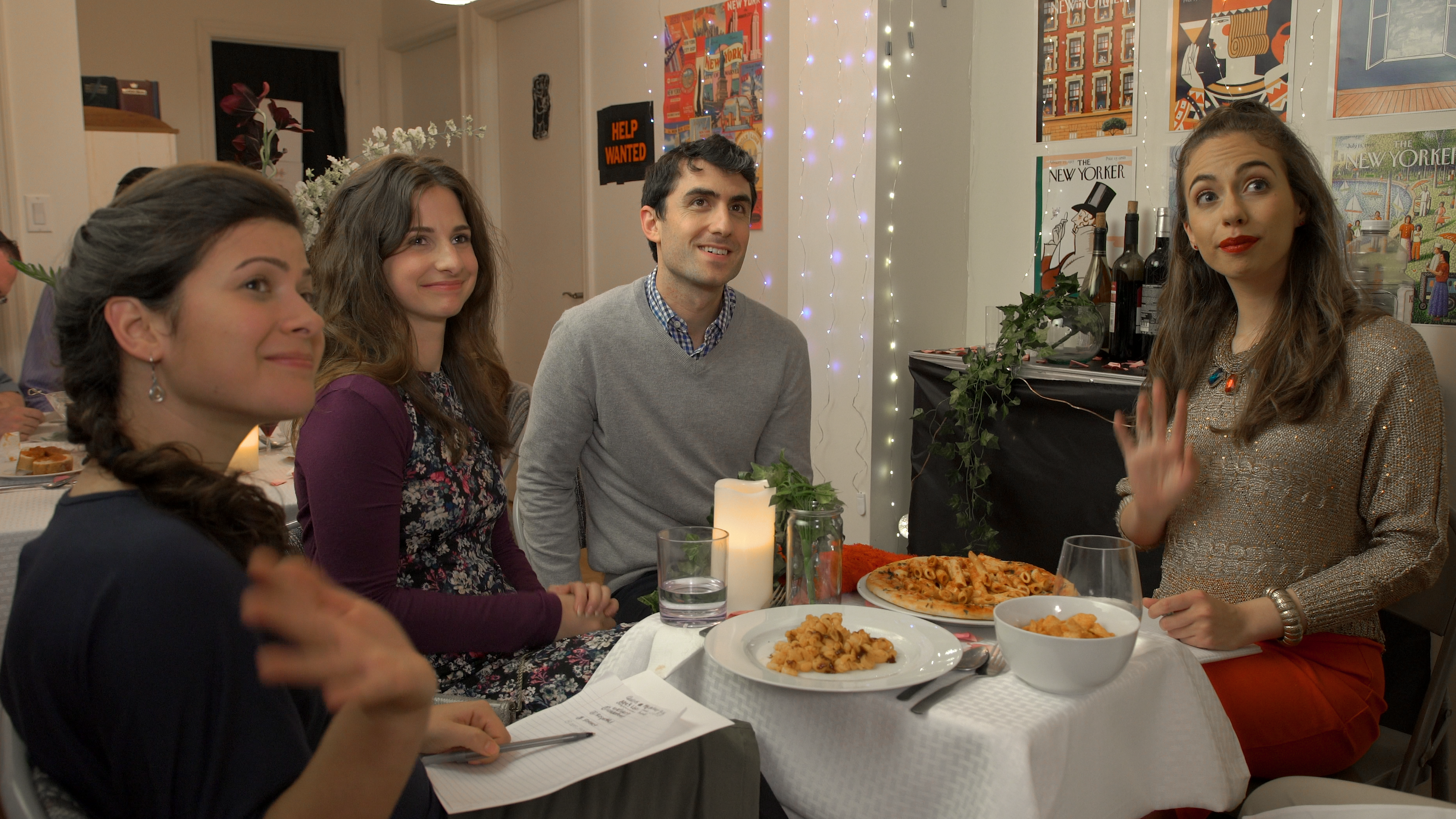
Stills from season 2 (Dignity Entertainment)
Gottfried, who met with me in her West Harlem apartment, is tangentially part of a women-run fledgling film industry that has been growing quietly for more than a decade within New York’s insular Orthodox universe, much of it centered in Borough Park and Crown Heights. Movies, DVDs and podcasts are produced, scripted and directed by women. Distaff-owned production companies provide everything from cinematography to editing to animation services. Gottfried herself owns a production company, Dignity Entertainment, which produces music videos, commercials and short films for clients. The major difference between Gottfried and the other filmmakers is that the others are ultra-Orthodox, even Hasidic.
Gottfried’s family, though Orthodox, owned a TV and attended secular films and plays. Nevertheless, both she and her fictitious characters often struggle with interpretations of Jewish law. “We do engage in the secular world, and there are different levels of observance,” she says. “For example, some young singles continue to go to matchmakers or meet their future partners on arranged dates or through Orthodox singles’ websites. Others meet their partners more naturally, like me. I met my husband at an open mic night for creative Jews.”
Gottfried’s husband, Isaiah Rothstein, is a multiracial Orthodox Jew whose biracial mother converted to Judaism. He is a social worker, a singer-songwriter, lead singer (and rapper) for his band Zayah and serves as rabbi in residence for Hazon, a Jewish lab for sustainability that is the largest Jewish environmental organization in America. “He calls himself the undercover brother,” Gottfried quips.
Whether the show should picture young singles kissing or even holding hands is problematic, thanks to the Orthodox prohibition against a man and woman being alone in a room, not to mention touching before marriage. Gottfried admits this taboo is mostly observed, but there’s some latitude among the Modern Orthodox. “It’s nuanced,” she stresses. “But at this point, I don’t think the characters will have physical contact. I’m far more interested in the tension that’s created when they don’t.”
“What about cursing?” I ask.
“These characters wouldn’t curse,” she replies.
Still, in one episode that generated some controversy, two heterosexual male wedding crashers pretend to be a married gay couple. Devoid of any commentary, the light-hearted scene simply acknowledges the existence of gay men, and that was a turnoff to many in her largely Orthodox audience. Yet Gottfried says the majority of all viewers liked the scene, adding that she doesn’t approach her writing with any preconceived dos and don’ts, short of not allowing others to dictate what she writes. “There are those who feel the series is too religious, and others who feel it’s not religious enough,” she says. “But I can’t allow their voices in my head.”
Yet it’s a constant juggling act—maintaining authenticity on the one hand, while not slipping into stereotypes on the other. Case in point: The single woman’s obsessive need to get married and the cultural pressure to do so. It’s not a flattering or enlightened image. Sarah Jacobs’ self-worth is torn to shreds because she can’t find herself a steady boyfriend. The fact that she is profoundly shallow, relentlessly entitled and materialistic to a fault doesn’t help.
Gottfried says she is making no sweeping statements about Jewish women, nor does she see the character as exclusively Jewish. To judge by the letters she has received, her Sarah has resonance across the cultural/ethnic spectrum, including for Muslim women, who’ve written to Gottfried to say that in many ways, the show reflects their lives. More important, as the show evolves, Sarah will increasingly emerge as a multidimensional human being, says Gottfried, who is determined to make the unfamiliar familiar, to remind the viewer of how universal human experiences may be and to break down barriers.
She is proud that her crew is diverse, and that inclusiveness is valued. Even the actors are not all Jewish. No Orthodox dress codes (i.e., skirts worn below the knees) are required, even though on ultra-Orthodox/Hasidic-run film sets they usually are. That said, Gottfried is especially attuned to creating employment opportunities for Shomer Shabbos Jews, who cannot work on Saturday, and to providing a comfortable platform for Orthodox women performers or those who might be toying with the idea of writing and directing.
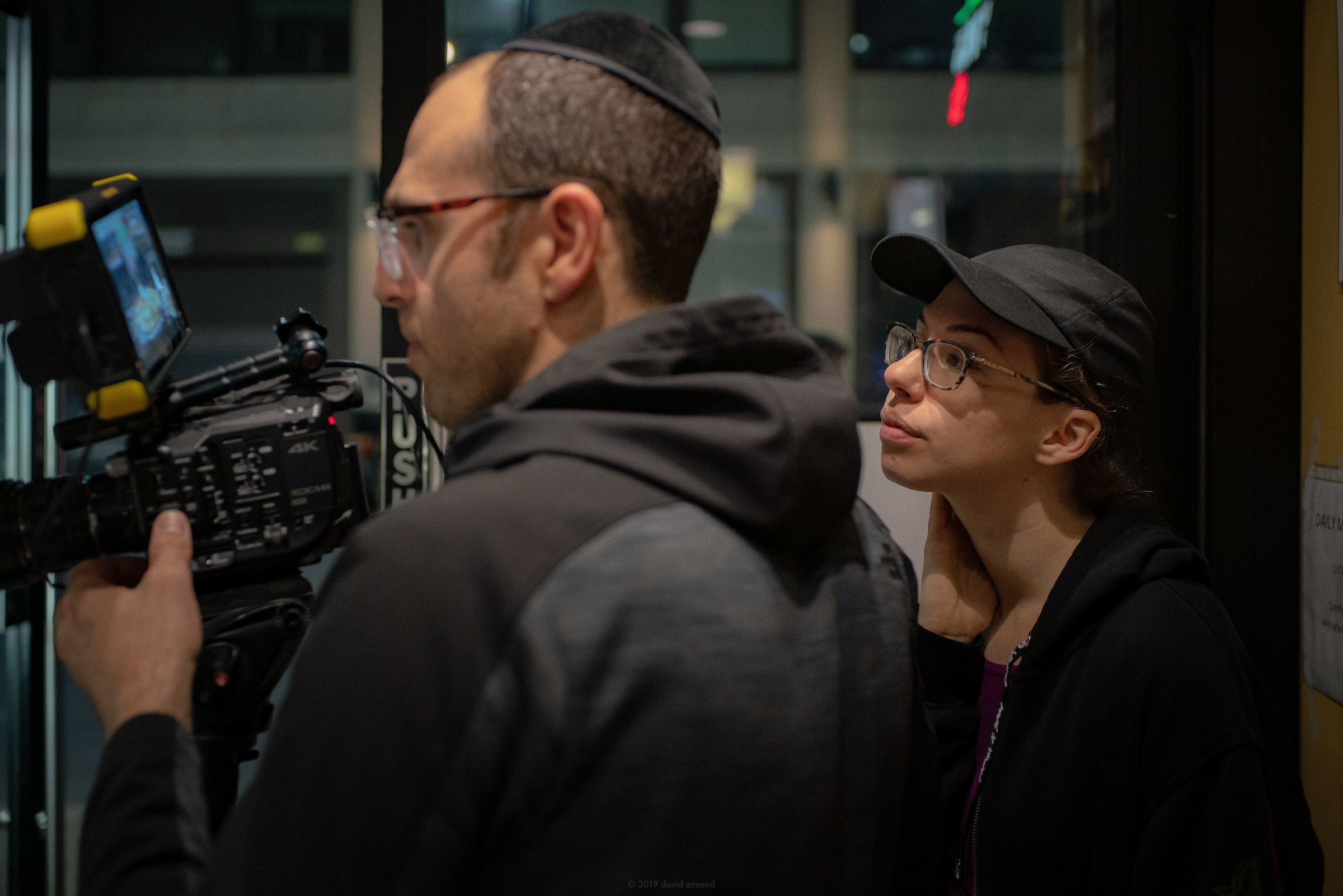
Leah Gottfried on set (David Zimand)
Gottfried was born to ultra-Orthodox parents and lived for a time in Monsey, New York, an Orthodox enclave. Her parents divorced when she was five years old, and her mother, who moved with Leah to Flatbush, transitioned to Modern Orthodoxy. Gottfried attended local yeshivas, an experience that shaped her, even though her ambitions were discouraged. “In third grade, our teacher asked us to write down what we wanted to be when we grew up,” recalls Gottfried. “I said I wanted to be a movie star. The teacher crossed it out and wrote, ‘You can’t be that. Find something else. Do it again.’”
Gottfried did not heed that warning. Indeed, with her mother’s help, she appeared in a number of commercials, though ultimately she dropped out because many were shot on Saturdays, which led her to writing and directing. At the helm, she believed she’d be able to control the scheduling of rehearsals and filming sessions.
Today, writing and directing takes precedence over acting for Gottfried. She is inspired and influenced by the work of such filmmakers as Israeli director Rama Burshtein (Fill the Void, The Wedding Plan), Greta Gerwig (Lady Bird) and especially Ava DuVernay (Selma, When They See Us), because of the way, Gottfried says, DuVernay “brings stories about people who are marginalized to the forefront.”
But she quickly learned that in filmmaking, entrepreneurship is just as important as artistry. Gottfried has always been a self-starter. Still, playing a proactive role as a producer has had a learning curve. She admits, for instance, that raising $30,000, the cost of each episode, has been daunting. Endless time is spent sending out emails and making cold calls to foundations, crowd-funding contributors and soliciting others who will help underwrite an episode in return for promotion placement in that episode. The dating site Shabbat.com and the dating app Forj have been sponsors. Jswipe, another dating app, will be underwriting an upcoming episode. Product placement, however, is a morally gray area, as well as artistically challenging, says Gottfried. Still, she frequently partners with socially-minded organizations that speak to her cultural and political sensibilities. One such group is the Organization for the Resolution of Agunot (ORA), a nonprofit operation committed to making Jewish divorce laws more equitable for Orthodox wives who want out of a marriage, and more difficult for recalcitrant, abusive or blackmailing husbands who are unwilling to give their wives a divorce (get).
So, how does it work? In one ORA sponsored episode, the organization is cited a few times, most pointedly during a pre-wedding sequence in which several characters talk about the value of a Halachic Prenup, a contract between newlyweds that addresses the consequences of divorce from an ORA perspective.
Gottfried says her artistry and her sense of herself as a Jew have informed each other. “As an observant Jew, I’m reminded that I don’t want my work only to serve as entertainment, but in some small way to inspire. And as a creative person, appreciating that everyone has a story adds a layer of thoughtfulness to my observance.”
So, what’s coming down the pike? Ideally, Soon By You will move to a larger platform (think Netflix, Amazon) and Gottfried is currently writing an edgier pilot with that goal in mind.
Simi Horwitz is an award-winning arts reporter and film reviewer who recently won a first-place Simon Rockower Award (the David Frank Award for Excellence in Personality Profiles) for her piece “Abby Stein: A Gender Transition Through a Jewish Lens,” published by Moment Magazine.
Top photo: Leah Gottfried on set (David Zimand)

